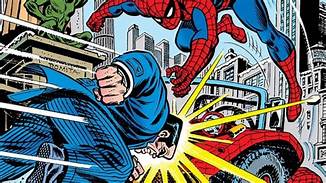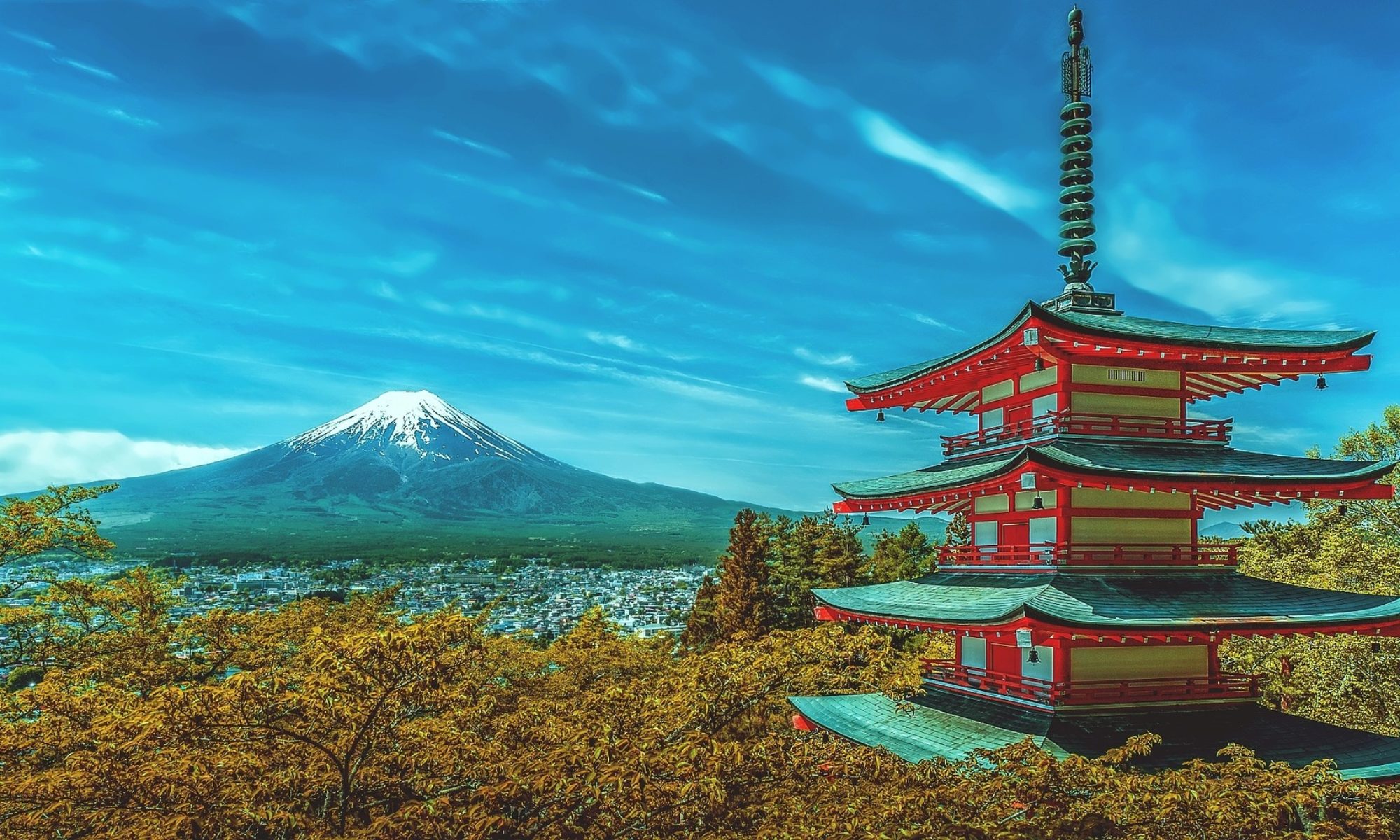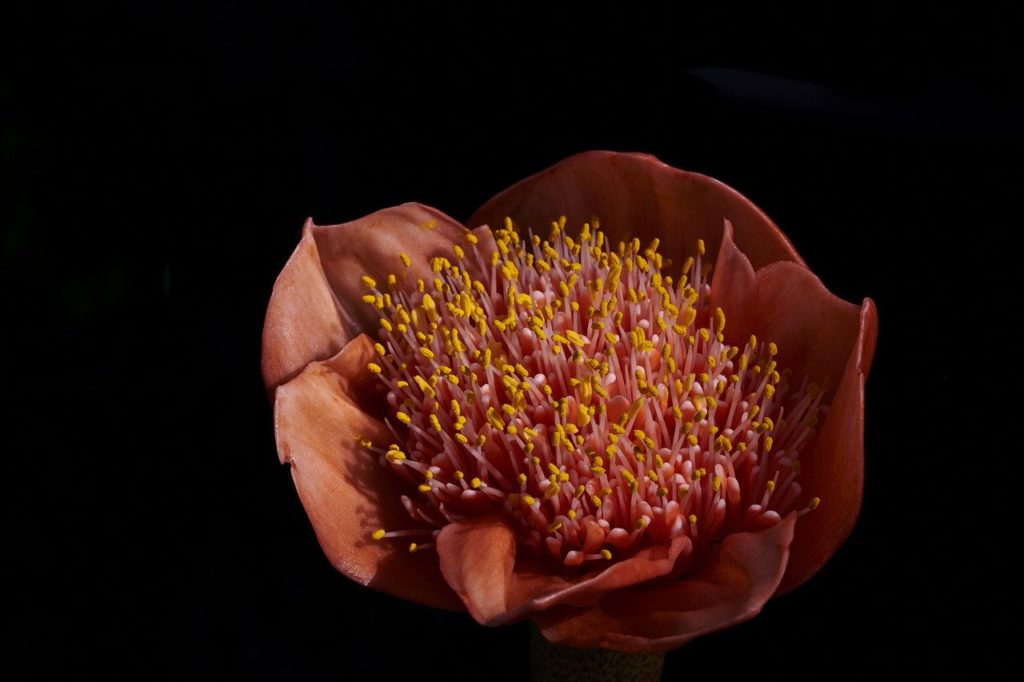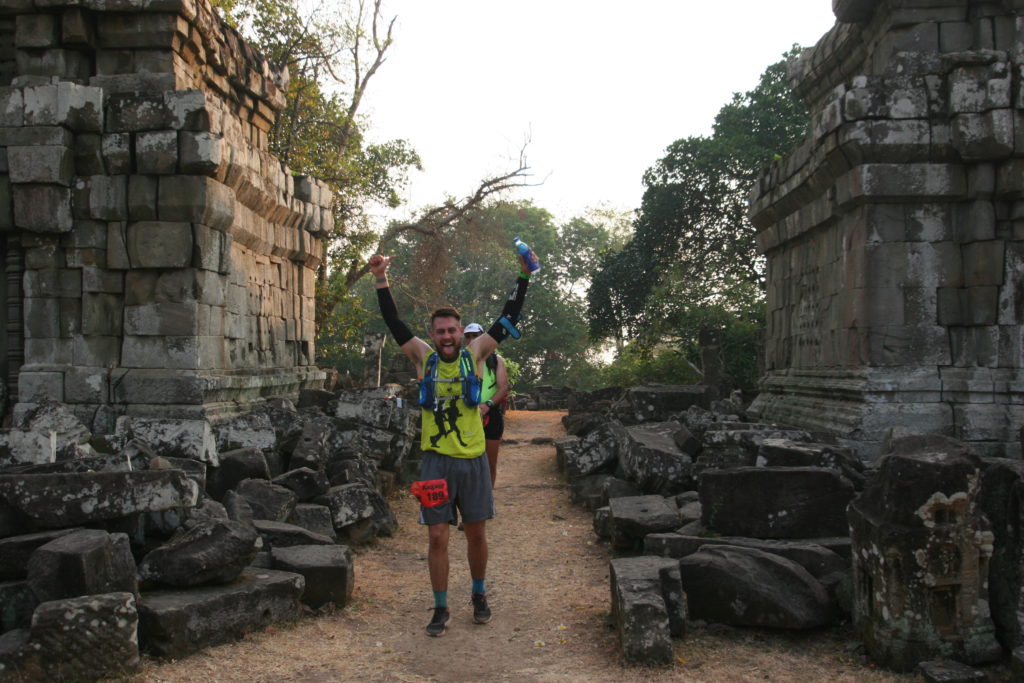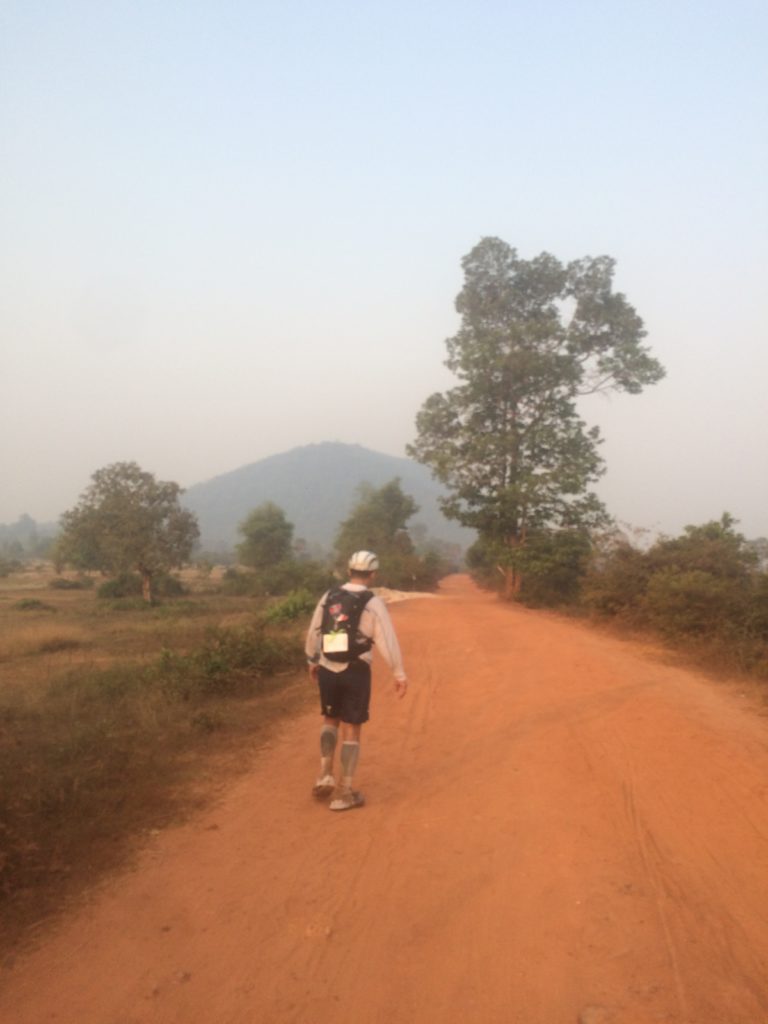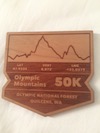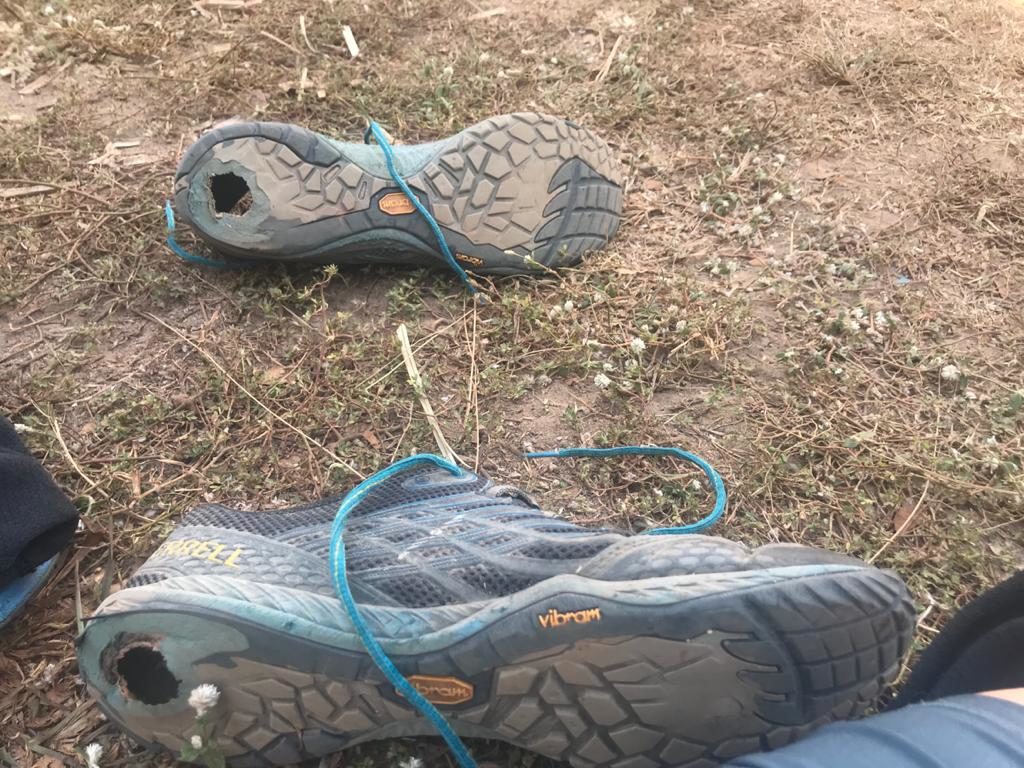Hundreds of years ago, there was a village of natives next to a river, close to where it spilled into the Great Sea. The chief, Standing Bear, had a beautiful daughter named Leotie, but everyone called her Coyote.
Her beauty was known to play tricks with men’s minds, so that they were spellbound and dumb in her presence.
All of the warriors and most of the braves were in love with her, and fights occurred almost every time her name was mentioned.
Coyote came into that age where it was time to marry, and many in the village grew excited and restless. Standing Bear watched the tribe in its unruly state and was silent for three days.
After his silence, he announced to the village proudly that his daughter was of marrying age, and he had decided on a proper ritual to decide which member of the tribe should win her hand.
There will be a race, he said, at the first sign of Spring. It will start at the village and go up the river to the Lonely Pine forest, through the forest, across the plain where the flowers grew so tall and pretty, down into the Lost Canyon, where all of the braves had their rites of adulthood, up out of the canyon into the beautiful rolling lavender hills at the foot of the Porcupine Mountains, up and over the mountains and to the top of Eagle’s Peak, the tallest mountain in their world.
Once there, they would have to pick up the Chief’s Bear Claw necklace, which the Chief himself would hide, and return it unharmed. The warrior or brave that would return first with the necklace would take Coyote as his bride.
The entire village erupted with excitement. The tribal elders could not remember a time with so much anticipation, or when the tribe seemed to be as tightly knit. They all seemed blessed by the Great Spirit, and the elders went out of their way to thank Standing Bear for leading the tribe to beautiful shores.
The tribe itself was a large one. There were many strong warriors and lively braves-most of whom were very interested in winning Coyote’s hand. Many began to sneak out on secret training runs, eager to increase their strength and endurance. The energy they invested in their training, as well as in the speeches they made as the race approached, was infectious, until even those braves, warriors, and yes, even squaws, who were not interested in Coyote as wife, began to see the race as an opportunity to prove themselves to the tribe.
Life continued through the long winter, but everyone had one eye on the coming of Spring. Many in the tribe were already happily married, and they did their best to support and encourage those who would run, but there were even a handful of these men and women who decided to run anyway, with no desire to win. They either enjoyed running that much or wanted to be part of something special, and would not even make the effort to look for the Chief’s bear claw necklace at the top of Eagle’s Peak Mountain, should they arrive there first.
In addition to the married runners who harbored no thoughts of victory, many of the tribesmen would have no chance of winning because of physical limitations. Some of the braves, for example, had voices like birds, and their ascent to manhood was years coming. Even some of the warriors were ill-equipped to undertake an event of that nature, they were either too slow or too weak or even too poorly orientated, and would only start the race because of desire.
There was one final group of runners that had very good chances of being the first to return with the prized necklace. These were the fastest, strongest, smartest and purest of the tribe. None of this group, however, compared with Winged Salmon, whose name sounded much more imposing in the language of the tribe.
Winged Salmon possessed single-minded determination, endless persistence, the legs of a stallion, and a sharp and clever intuition. He was one of the tribal scouts, and when he went out scouting, he was gone for days or weeks. He never seemed to need food or sleep, and he would be very difficult to beat in the Great Race.
There were other great runners and scouts in the tribe, like Rolling Stallion, Seven Lightning Bolts, and Runs With Rams, as well as two squaws, Galloping Deer and Falcon Wings, who had already made names for themselves as runners in their own right. Both had already run to Eagle Peak Mountain and back…
There was one runner, though, who was ignored by all. Falling Rocks was a quiet young man, very healthy, but not known for being very strong or fast at all, or even for being a runner. He kept mostly to himself, took long walks, and loved to watch the animals of the plain and the fish in their waters without disturbing any of them.
Some called him strange. Many of the older women in the tribe called him a lover. One thing was true, inside his heart of hearts there was a fire burning so strongly for Coyote that he didn’t need the sun.
Every breath he took was hers.
Every bit of food he ate, when he remembered to, was hers.
Every step he took, in any direction, was a step closer to her.
And, when the last full moon rose, about a month before the race, he started to run at night.
The tribe, like many others, had several medicine men. The lowliest of them Circling Crow, who got his name because someone once said his treatments would go only about as far down the road to wellness as a bird with a lame wing.
Circling Crow had twice prophesied that wolves would be coming for the tribe’s young, which seemed unlikely since the tribe lived in an area where there were none to speak of, and none came to fulfill either prophecy or at all, for that matter.
The disgraced medicine man was possibly the only member of the tribe not interested in the race. He was young, not taken by Coyote’s enchantments, and only interested in earning his good name back.
His grandfather had been a great medicine man, as had his father. His own father had spoken the words that still rang in his ears; that one day he would be the most important voice of the tribe. Circling Crow aimed to make these words a reality.
Winter was fading. The snows were melting, and the river, no longer iced-over was high. One day, Circling Crow was walking out of the Lonely Pine Forest into the wide plains between the trees and the Lost Canyon. He heard something and crouched low. His ears and mind worked feverishly, trying to find the origin of the sound and what it meant. He crept nimbly through the high grass to the edge of a small clearing-and froze.
Circling Crow did not like owls-he had always been wary of them from the time he was small. His grandfather always told him to respect owls like no other creature, because it was the owl that signaled the approach of death.
In the middle of the clearing two owls were tearing at a carcass. Circling Crow, who was one of the stealthiest members of the tribe, tried his best to make himself invisible and silent. He did not want to be noticed by the large and dangerous predators. At first Circling Crow thought the two were busy with a rabbit, and he started to back away carefully. But then his eyes caught a flash of white, and, focusing, saw that it wasn’t fur that the birds were tearing.
It was an eagle.
He froze again. He had never heard of such a thing. His mind tried to work but couldn’t. His mouth fell open. Whatever was happening, it was bad. He felt it.
Circling Crow tried to slither away as noiselessly as he came, but he felt the wind change-the owls were now downwind. One of them raised his head, and the other did too. He closed his eyes, trying futilely to erase what he knew had just happened. He was marked.
He opened his eyes again, and the owls were gone.
His eyes searched the clearing and the skies above, but he was alone. After a few moments, he stood weakly. Moving forward slowly, he saw the remains of the eagle in the clearing. He approached it, bent down, and plucked a tail feather from the remains while reciting a chant to ward of the spirits he knew were circling him angrily.
He made his way back to the village, sure that his time, as medicine man and voice, had come. Looking down at the feather in his hand, he thought, “Standing Bear must see this.”
“Are you happy, Circling Crow?” Standing Bear asked the younger man once they were inside his longhouse. “I always hoped you would be as fulfilled as your father and grandfather, they were great men.”
Circling Crow hung his head and remained silent.
After a pause, Standing Bear took a seat and motioned for Circling Crow to do the same.
“Winter is dying,” he said. “I think the time comes for the Big Race. Will you be running for my daughter’s hand, Circling Crow?”
“I will not,” said the medicine man. “I have seen something, Standing Bear, and it bears hearing.”
Standing Bear closed his mouth and looked into his fire.
“The first flowers always know their time to push their blossoms through the last snows. The branches fill with buds when it is time for buds.”
“What do you mean?” Circling Crow wanted to know, not liking where the conversation was heading.
“There are no wolves around us,” Standing Bear stared at the young medicine man, who was hurt.
“I know there aren’t,” Circling Crow said angrily. “But I know a vision when I see one. Whatever has happened, let it be the past between us. I have seen something very disturbing, Wise One, and I would like to hear your thoughts on it.”
Chief Standing Bear remained silent, but motioned for Circling Crow to continue. The medicine man explained all that he had seen, up until the part where the owls looked at him. The chief listened closely, but when he heard about the eagle, he grew openly concerned.
The two men traveled to the clearing where Circling Crow had found the owls. They looked everywhere for the dead eagle or signs that it had been there, but found nothing.
“It was wise of you to come to me,” Standing Bear said, scanning the horizon.
Circling Crow could not help but feel pride. The Chief turned to him.
“It spares you further embarrassment,” he said. The medicine man was crushed. He held out the tail feather and began to speak.
Standing Bear held up a palm.
“There are three birds full of feathers in my headdress,” he spoke. “I’ve found them everywhere between the spot where the sun rises every morning and where it goes to rest every evening.”
He looked down at the younger man.
“You will be a great man one day, Circling Crow, when the flowers push through the late winter snows. Waiting, until then, is difficult. Especially for the young.”
One week later, the members of the tribe did not fail to notice Standing Bear leaving one morning and heading upriver.
It was happening.
Many of the braves, squaws and warriors taking part in the race headed toward special spots, where they hoped to pray and gain strength and inspiration for the race. The village was drained of life. As the sun began to set, a shadow approached Coyote under the sprawling branches of a pine tree.
It was Falling Rocks.
He neared her slowly, urging her to be quiet. She was nervous, as she was not supposed to see any of her suitors before the race. He brought a hand up, reached it into a pouch at his hip, and took out a bracelet. It was made of beautifully polished wampum, and held seven circular turquoise stones spaced evenly around the band. Coyote had never seen anything that beautiful before, and looked up.
Falling Rocks was gone.
The Chief returned a few weeks later and announced that the race would begin the following morning at sunup.
The night passed slowly. Hardly anyone slept. Winged Salmon spent the night getting loose. Most of the tribe stared upwards for hours, as the moon soared up into the night and glided slowly towards the dawn. Circling Crow stared into his fire, reciting incantations and trying to speak with those that had gone before him.
Falling Rocks was above them all. He sat on a nearby rise under the star-pierced wigwam above him. He had already returned the bear claw necklace to Standing Bear, and was enjoying his future life with Coyote. It was so real there behind his eyes he could feel it. Smell it. Taste it. And what he enjoyed most was the gaze Coyote returned to him whenever he looked her way. He was trapped in those eyes, drowning, but no need for air.
The darkness melted. Morning birds roused the groggy village. Mere moments passed until the slumbering tribe shed its drowsy skin and bustled. There were hugs and well wishes around. Songs were sung. People were dancing near the center of the village. When Standing Bear arrived, he thought he had never seen his tribe as joyful, and he was proud. Then he saw Circling Crow.
He was standing at the edge of a large circle of runners, listing to and fro, entranced. His eyes were blackened, and he had merged with his totem animal. He bumped through the crowd and stood on a rock.
Standing Bear hissed at him, trying to get him to remain quiet. Seeing what was coming, he moved forward to pull Circling Crow down from his rock, but it was too late.
The young medicine man let out a long, high-pitched screech that silenced the tribe. In the pause that followed, two or three jokesters made wolf calls. The Chief raised his staff and bade them to be silent. Maybe, he thought, Circling Crow has better news.
“You all know me,” Circling Crow began, staring around the circle. There was a strength in his eyes no one had seen before. “You all laughed at my prophecies when they failed to come true. Perhaps you’ll all laugh at this next one. But I promise you, you won’t be laughing long.”
“Circling Crow,” Standing Bear said. “Come down from there. We’ll talk about this in my longhouse.”
Circling Crow stared at Standing Bear. He continued speaking while he did.
“I have seen something which does not bode well for this tribe. I have made mistakes in the past, perhaps. I haven’t been the medicine man I wish I could have been. I haven’t lived up to the men my father and grandfather were. But does that mean I should give up trying? Does that mean you should ignore what I have seen? I hope not.”
He paused, looking at the tribe.
“I know what this race means to everyone. I know how much we need it. But I beg you now, do not run.”
The crowd grew unruly, and many began to shout and curse.
“I watched two owls tear the life from an eagle not far from Lost Canyon. This race is cursed. The only thing you all will find at the top of Eagle Peak is death and ruin. Do not run. We can still race another time…”
“Falling Rocks has started to run!” someone shouted.
The tribe burst into a confused mess. Some looked to their chief, others to family members, still others started to run towards Falling Rocks, but stopped again. Others started to run. No one knew what to do.
Wingen Salmon took off. He was their greatest runner, and he would not let Falling Rocks claim his rightful prize.
All of the runners followed. Young and old. Squaw, Warrior, and Brave. Starry-eyed and just ambitious. They were off. The breath coming from their mouths formed a wispy cloud that danced and snaked inside itself. Some of the older women, watching them all run upriver, began crying.
Standing Bear’s shoulders sank. He did not like how this day had begun. He looked again towards Circling Crow, who was shouting at everyone to stop running, and then his eyes found his daughter.
She was looking past the runners, somewhere up into the hills beyond, and smiling.
If she is happy, he thought, then I am.
The morning was cool, but winter had lost its bite. It was perfect weather to run in. And almost all of the runners wore smiles. After a few hours, they entered Lone Pine Forest, which towered above and around them, full of Nature’s vitality, despite the season.
Many of the younger runners and some of the squaws were already falling behind. Most of them would not make it up Eagle’s Peak Mountain, but they would try their best anyway.
The stronger runners were chugging along like stampeding bison, but with a lightness and grace like a strong autumn breeze. Many of them wore pouches in which they carried scraps of food to strengthen them, and, of course, their water bladders. Those who hadn’t thought of these were not only regretting it already, but the seed of failure began to grow in their minds. They had their excuse, if they should fail, and, because they did, would fail.
The hours passed. The sun rose weakly in the late winter sky. It provided little, hardly-needed warmth, but a glorious mid-morning light to highlight their way over the beautiful landscape.
Near the front of a long, irregularly-spaced line of runners, a group of the tribes healthiest athletes had formed. They ran tight and efficient, cherished the breaths they took and the way they landed and sprang forward. It was easy for them to do because they all loved to do it. The only question was which of them would run best?
At the front of this group Lightning Foot flashed forwards with the two squaws, Galloping Deer and Falcon Wings, as well as Seven Lightning Bolts, Runs With Rams, and the surprise member of the group, a tall brave named simply The Fleet One.
The group was running strong, but it was work. Somewhere not far ahead-they saw him from time to time-was Winged Salmon. He was setting a blistering pace, like a mountain lion on the heels of a rabbit. So intent were most of the members of the group on staying close to Winged Salmon, that they forgot he was trying to remain close to someone as well.
Winged Salmon knew the land like he knew the lines and curves on his own body. He had run over it thousands of times, in every direction, until there was nothing he could be surprised by, and nowhere to get lost. There was only an opportunity, everywhere in front of him, to run as fast as his feet could carry him.
And he was.
As time passed however, and he pounded more and more ground behind him, the thought crossed his mind that he still could not see Falling Rocks. It was the first moment of any run, of probably his whole life, that he doubted himself. As soon as those doubts arose, however, Winged Salmon quashed them a double dose of determination, and began to ran still faster.
The runners ran on for hours and hours. They ran from one end of the massive forest to the other, and, as the sun neared its nighttime home in the west, the first of them began to leak out of Lone Pine Forest. First Winged Salmon, then the group led by Lightning Foot, and finally the rest of the tribe’s runners. Many of them would not make it through the first night, and would return back to the village to dream of other conquests in the future.
They bounded over the plains between the forest and the Lost Canyon, where the first flowers had sprouted up from the last of the winter’s snow.
Their feet flashed and danced through the brush, kicking up snows. One or two of them fell, as the the ground was not only slippery, but very uneven, and it was getting dark. Some bled, but everyone kept moving towards the Lost Canyon.
By the time night fell, many of the runners showed the first signs of weariness. Their eyelids hung, they mouths watered, and their legs became heavy. The first runners were already wondering if Coyote was really that special, and those of them not running for her hand were already wondering if they had proven enough.
Still they ran on. They ran for hours and hours. They ran as night deepened, and they were forced to run more carefully. The quarter-moon, when it rose, did not provide them with much light, and the uneven ground was an accident waiting to happen.
They ran when the night creatures became active, and were still running when they returned to their dens. They ran past each other, and watched as others ran past them. They ran and joked, they ran and chatted, they ran in silence. And they were still running when the first day died, and the dawn rose on day two.
Winged Salmon had entered the Lost Canyon shortly before dawn. The rocky ground was treacherous, but he was used to it-had run there a thousand times. He made good time.
His feet pounded out the time, as did his breath. The breaths and pounding of his feet formed a song in his mind, a song he tried to sing as strong and as loud as he could.
The day was born, grew and aged during the chilly morning. Still the runners plodded on. Most were tired, but almost all of them were happy, running in the beauty of Nature with all of their friends. So, as the minutes waned into hours, the hours into daytime and night, they made the most of their journey and tried to drink it all in.
But still, up ahead, deep inside Winged Salmon’s mind, rose the question: where is Falling Rocks?
Back at the village, it was unusually quiet. Standing Bear was uncomfortable. There were only a few members of the tribe who hadn’t run the race, which meant the chances of running into Circling Crow were high. He was not looking forward to it.
Fortunately, Circling Crow was not eager to see anyone either. He had vanished. At first Standing Bear was glad about that, but, as the sun set on the second day, and there was still no sign of the medicine man, the Chief began to get anxious.
He stepped outside his longhouse and turned his face upwards. He felt the air fill his nose, and he inhaled deeply. There was something there he could not understand. He could neither name it or describe it; it seemed to come from nowhere in particular and grow.
The runners ran on for hours and hours, into the night that ended their second day. Those without scraps or water were nearing their limits, and they were forced to interrupt their running and scrounge. They fell back.
The group near the front remained tight, and moved swiftly forward. They began to look out for each other; they shared bits of food and helped each other up. But, as tightly knit as they were, each one of them had one thought they dreaded the most: that they would look up and realize Winged Salmon was long gone.
The villagers had two things to look forward to, and neither of them were good. They could either wallow in the endless, insufferable wait, and the lack of knowledge about the whereabouts of their sons and daughters-the largest portion of their tribe-or they could look forward to the crushed and dejected faces of the runners who hadn’t made it.
They returned slowly at first, one at a time, usually the smallest or oldest first, but then more and more regularly. As bad as it was seeing how low these runners were feeling, at least they were able to get some information about the race and its participants.
By the third day, the first warriors were coming back, and all of the braves except the Fleet One had returned. One of the warriors was Runs With Rams, who had twisted his ankle badly and was unable to continue. From him the villagers gathered a wealth of information about who was near the front of the pack and whereabout Winged Salmon was. However, not one of the returning runners could say anything about Falling Rocks. No one had seen him, not even, Runs With Rams guessed, Winged Salmon.
The winter had been harsh. One of the longest coldest stretches that anyone could remember had many people yearning for spring and the healing rays of the sun. The snows were deep, and the cold froze everything. Smaller animals could not scrounge for food as successfully as in years past, and had to depend on luck alone when it came to finding food for themselves and their families.
Many smaller animals did not make it, and that led to tough times for the predators. Times got so bad, that many hunters had to resort to traveling longer and longer distances to find food. Most of them headed South.
Including the wolves.
Late sometime deep in the night of the third day, eyes throughout the village, even those swimming in the deepest depths of dreams, flew open the instant the long lonely howl of a distant wolf called through the darkness.
Other wolves soon echoed.
The group following Winged Salmon had thinned. Some had fallen back, others had given up and returned to the village. As soon as they heard the howling however, all woes and weariness were forgotten. Runners hardly able to keep moving found themselves scooted briskly to the shelter of a larger group.
Once there, everyone slowed to a walk and tried to present no backs to the night. Warriors scoured the canyons and the first hills for weapons, but the land was barren and offered only rocks.
As the last of the group wound their way out of Lost Canyon and onto the first of many rolling hills, they felt the pack growing near, locked onto their scent. The wolves were hungry; and desperate.
The hours passed slowly in the village. Most of the tribesmen and women were awake, and they stared into the distance toward Eagle’s Peak expectantly. Some wanted to go to help protect the runners, but Standing Bear reminded them that the village was almost empty and very vulnerable.
The sun came up on the fourth day, and most of the village was still awake and waiting anxiously. No one wanted to eat or sleep until they got word that the runners, their sons and daughters, were not in danger.
A figure strode into the center of the village, where everyone was waiting. Standing Bear turned his head to see Circling Crow, still with blackened eyes, leading his horse. The two exchanged glances.
“Circling Crow…” the Chief began.
But Circling Crow turned his head. He led his horse out of the village, mounted it, and headed upriver.
Standing Bear hung his head, but not to hide his tears. He had no shame letting anyone see his sadness.
The day crawled by like the slowest tortoise, or the lowliest snail. It was already well spent when a scout just outside the village let out a wail. No one needed to be told to move.
Men, women and children ran to the scout; the hours of idleness had fanned flames of bubbling excitement, worry, and fear. These emotions crashed the dam and engulfed them all. There was shouting and pushing, but no one wanted to be alone.
All of them watched as Circling Crow and Seven Lightning Bolts returned-with cargo. On Circling Crow’s horse lay the bodies of three runners, including the Fleet One; Seven Lightning Bolts carried what remained of Falcon Wings.
They were quickly surrounded, and family members tugged at the dead. The wails were heard throughout the night.
Seven Lightning Bolts did his best to tell everyone who wanted to know what happened after the wolves attacked, but he had been gravely injured as well, and hadn’t slept in almost four nights.
Circling Crow said nothing. After unloading the bodies of friends and loved ones, he merely turned and headed back to those rolling hills, where there had been no place for the runners to hide from the hungry wolves that had surrounded them. He still had cargo to fetch.
Running is one of the easiest things people can do. Sometime around eighteen months to two years, babies take their first steps. Not long after that, they recognize that they can move at different speeds. Whether filled with anger, fear, or joy, they find that running pairs well with these emotions; in the case of the first two, running enables them to approach a solution, avert danger, and release these emotions. In the case of the third, joy, running is an expression of all that makes us alive. It mixes excitement and happiness and floods the runner with the joy of movement, of life.
There are a few things, however, which help make a good runner great. Strong muscles, bones and ligaments, of course. Breathing technique. Experience and practice. The right foods. Enough water. Many of these physical things are easy to gain and train, easy to implement.
Other things, though, aren’t that easy. How we deal with weariness and pain, for example, is a force that governs the way we practice and gain experience. Our ability to focus also plays a role. But there is a point every man or woman reaches where a full-on war between the body and the mind is unavoidable.
Over the most intense half day of Winged Salmon’s life, He burned through Lost Canyon, attacked a dozen hills, each higher than the last, until he reached the base of Eagle’s Peak mountain. He was at war, and winning, but it didn’t feel like it.
The sun shone high in the sky. The mountain was bathed in its spotlight, revealing greens in all shades erupting from wintry white, spurs and dips that spilled downhill like beautiful lengthy hair, and rocky outcroppings-the attributes that formed the face of the mountain’s boundless power.
Winged Salmon saw none of it. Over the last three days, he had shed himself of all that would hold him back from catching Falling Rocks. He remembered nothing. He noticed nothing. He gave his pain and weariness no voice. He had remade himself into a creature of movement, one with the wind. After running for three days, he still felt strong, or told himself he did. And he knew, in his heart of hearts, that he would finally catch Falling Rocks on the mountain.
However, as each impossibly fast stride was laid behind him, and his eyes scanned the heights above him fruitlessly, his heart, burning as the sun above, began to collapse in itself and exploded in a new and terrible anger. In that moment, Winged Salmon was gone.
At the top of Eagle’s Peak, in the middle of the night, Winged Salmon scoured the ground looking for tracks, hints or any clue of Falling Rocks’ presence, or the necklace he already knew was gone. He was aware of nothing else, and certainly not that he was darting around like a rabid dog.
At last he discovered three rocks that were spread out, but that had obviously, judging from the indentations on the ground, been pried apart. He threw himself earthward and inhaled through his nose, drinking every drop of Falling Rocks’ scent, even detecting the essence of Standing Bear and his necklace.
He rocked backwards, still on his knees, and howled at the sky with all that was in his core, until there was nothing left in his lungs to howl. That was when the first wolf had howled, and Winged Salmon missed it. He would have missed it anyway-he was gone.
There was only one thing he could do. He would run Falling Rocks down on the way back and yank the chain from his spindly, cursed fingers.
Winged Salmon had become a Skinwalker, a cursed creature of the night. He ran down Eagle’s Peak Mountain needing neither food not water, air or light. His feet had grown eyes and become like the wind itself, but flowed like water ever downwards. He heard not the sounds of the wolves closing fast, or the calls of his fellow runners trying desperately to scare them off.
His heart, in fact, steered him ever deeper into the black night, away from the coming catastrophe, keeping him safe but fueling him ever onwards into the depths of his now twisted mind.
Circling Crow needed three trips to bring back the dead and wounded. Four warriors, one brave, and two squaws had fallen, and three more warriors would soon follow, being unable to survive their terrible injuries.
As soon as he had completed his task, he sat himself on a little knoll facing Eagle’s Peak Mountain and began to pray. He prayed to the Great Spirit that all of the remaining runners be returned to their village, and gave praise when, one after another, exhausted and, for the most part, still weeping, they did so.
In the long stretches of time between arrivals, he gave thought to his purpose after all of his tribe were accounted for. He played out scenes in his mind: he would leave and roam the Great World behind the mountains, he would retreat to some corner of this other world and speak with no one, he would lay down his calling as healer, and other such youthful dramas.
In each of them, however, there was no heart and no desire to see the images brought to their conclusion. They were all just swirls of smoke rising from pipes of peace. At first that gave him no cause for consideration, but then he realized that this was because there was still something that needed to be done, a purpose more important than anything the Great Spirit could conjure.
And this purpose, Circling Crow felt, was approaching swiftly. He sang and prayed, heavyhearted but at peace.
The tribe busied itself with the needs of the injured runners, and of the grieving families. It took all of the energy, time, and patience they could muster. Standing Bear split his chiefly duties between attending to the grieving and injured, and comforting his daughter.
She was inconsolable. All of her beauty had been worth nothing. What’s worse, she said, it seemed to be the downfall of the tribe. Then she turned to him and asked a question Standing Bear could not answer.
“Father,” she said, “am I cursed?”
Standing Bear could not answer because evil beings were convincing him, at that very moment, that he was cursed.
The fifth day began much as the fourth day ended. Grieving and healing was the order of the day. The screams of the wounded had ensured another sleepless night in the village. Runners and non-runners alike showed faces emptied of life, and stumbled about without knowing where to or why.
Everyone tried their best to pull through the worst of times, which seemed to have no end. At the very least, there were only a handful of runners still upriver, making their way back. The smallest children, as well, were doing their part to aid the tribe out of their desperation, just by being themselves and playing.
It was long after the sun went down that evening when Circling Crow, still upon his knoll, thought he saw something moving upriver. He stood, peering into the darkness, trying to separate the shadows. The river, as it had thousands of years before the tribe was ever conceived, gurgled and splashed its way ever oceanward. On this night, however, it would never flow just the way it had again.
He saw a man. He was lurching badly from side to side. He stumbled and fell, but continued forwards in a crawl. Circling Crow left his knoll and ran upriver to the form. He found Winged Salmon crawling on his belly, like a snake, no longer able to lift his head.
His first thought, upon seeing the once great runner, was that he was impossibly thin. He took the once mighty warrior up in his arms and found he weighed as much as a young girl. Looking through the dim light into Winged Salmon’s eyes, the medicine man saw nothing there that reminded him of the warrior that was. He brought the shell of a man back to his hut.
For three days, Circling Crow fed Winged Salmon a hearty broth, rubbed herbs into his skin, helped him drink water, and chanted the most powerful incantations that he knew which would help the warrior to shed his unwholesome Skinwalker persona.
At the end of the third day, Winged Salmon rolled onto one side and got sick. Circling Crow clapped his shoulder.
The weather had changed. Winter was dead. It was still cold-especially mornings-but Nature was birthing itself anew. The birds in the boughs committed themselves to song with renewed energy. Cubs crawled out of their dens with their mothers. Plants dead in name only hoisted colorful flags, perhaps as messengers of the bounty the Earth would soon be bestowing on all of its creatures.
In the village, however, the tribe whose name meant ‘the people’ were still encased in the Season of Mortality. They hardly spoke, never sang, and grew thin. No one felt much like eating. Many of them were already well down the path toward becoming Skinwalkers as well.
Standing Bear had led a search party, along with a now healthy Winged Salmon and three of the best trackers in the tribe, to try and find Falling Rocks and his precious bear claw necklace.
They traveled for days and days and weeks and weeks until their feet bled and they couldn’t be lifted anymore. They turned over every stone from the village to Eagle’s Peak Mountain and back again. The best trackers they had could not turn up one single clue as to Falling Rocks whereabouts, or the bear claw necklace. It was as if neither ever was.
The party contained the best the tribe had to offer: its strongest, bravest, healthiest, and wisest members. They were persistent and could endure the worst for far longer than many others could, including one scout who had traveled forty days through a blizzard with no food and no warm clothing to save a young brave that had gotten lost and enslaved by an enemy tribe. He rescued the youngster and carried the weakened brave most of the way back.
None of them, however, not the hardiest or strongest among them, could help but to look toward Standing Bear for guidance. There was a desperation in their eyes that the chief did his best not to notice, but to no avail. All eyes were upon him. The fate of the tribe lay upon his aging, weary shoulders.
They returned sadly to their village.
While they were gone, Leotie, the chief’s daughter, left the village. She also had things to attend to.
She headed upriver as well, but stayed far behind the search party, well beyond the reach of the eyes and ears of the world. There was nothing more the tribe could give her.
There was nothing more to look forward to in her life. Any and all of her dreams were shattered, and the worst part was that even though she didn’t understand how, she knew she was responsible for all of the dreadful things that had befallen the tribe.
She was almost too weak to move forward, and she was too sad to cry or stay behind. There was nothing left of the Leotie that was.
Any last hope she had of recovering herself and her world had vanished like the morning dew the moment she had asked her father if she was cursed and he had not been able to answer.
She felt horribly for him, knowing what she was planning to do, but she could not live with the crushing disappointment her life had become.
Leotie carried herself to the top of the Lost Canyon, and, with a heavy sigh, hurled herself to the Great Spirit.
The search party found her on the way back. Chief Standing Bear had lost the light of the sun, but could not help noticing how easily the trackers and scouts had found this next bit of evidence that he was to be punished for something mysterious and unforgivable interminably. He raised his head to the heavens and begged the Great Spirit to tell him why.
Then he bent down and took his daughter into his arms. He tried to breath in her scent one last time, to burn it into his mind and lock it way inside his deepest of hearts. But there was no trace left to inhale.
The members of the search party hung their heads in silence, not knowing what to do and trying not to hear the sobs of their once powerful leader.
The sobs quieted, and the Chief spoke.
“Go back,” he said. “Take care of our tribe. Take care of the old, the sick, the young and the grieving. Give me three days. I have spoken.”
The Chief returned to the village three days later feeling desolate but strengthened. He felt he could handle the demands the world would have on his tribe and himself. And when he went back to the village, he brought with him an idea, one of hope, one that might just carry the tribe away from the Pit of Despair it now found itself in.
Unfortunately, there would be one last matter for him to attend to before he could share the idea with anyone.
For, when he entered the village again, they found several of the warriors beating Circling Crow, convinced he had somehow called woe down upon the tribe.
Chief Standing Bear and the other members of the search party separated the medicine man from the angry warriors.
“Fools!” he shouted. “This was the only man who foresaw the disaster that awaited us once our race was started. Not even I respected his advice, and ignored him when he urged me to delay its start. If you want to fight and kick someone, take me. I deserve it more. But remember this-my daughter is gone, just like many of your sons and daughters. We are all in this wretched state together, if you want to see it or not, and fighting amongst yourselves only delays getting out again.”
The Chief fell silent and looked at what remained of his tribe. Once proud, vibrant men and women, full of fire and hope, they had taken to stare disconsolately and to not look each other in the eye. The dwindled number of braves, warriors, and squaws could not be overseen. A change must come, he thought.
“Nothing this terrible has ever befallen our tribe before, in all the time I’ve belonged to it, and all of the time before that, I’m sure of it. It all began the moment our brave sons and daughters set out to run that ill-advised race. And I’ve decided the only thing that is going to pull us out of our misery, is another race.”
Heads turned.
“Are you mad, Standing Bear?” one of the men who had beaten Circling Crow shouted. “Will you not be satisfied until we’re all food for the crows?”
“Quiet!” the Chief said sternly. “The last race was run to pit each of us against each other, man against man or woman, young against old, for the promise of some prize. It was foolish and flawed to expect the Great Spirit to grace us with good fortune by dividing our strengths and ignoring the present in favor of some future good.”
The tribe was silent; it was the most vocal they had ever heard their normally reserved Chief be.
“We will run again. This time there will be no prize, no one will be given away. There will be no winners and losers, just one day where all of us can become, once again, proud and strong. We will start together and finish together. We will help each other along, take delight in each other’s successes and help each other overcome their failures. The race will begin at sunrise of the summer solstice. Make sure you’re all in good shape-you wouldn’t want this old man to make you look foolish, would you?”
What light was that creeping across the great chief’s face? It could not be a smile… Yet, there it was. The tribe was infused, in that moment, with more excitement and giddiness than it had felt since the morning of the race. Others smiled, and even approached the chief to express their grief over his loss.
And that is how, on the morning of the summer solstice, the entire tribe moved out at the first hint of daybreak, heading upriver. As the sun bathed all of their faces in its warming rays, the Chief looks from face to face and saw joy. Joy in being together, joy in moving, joy in being upon the great and beautiful, magnificent and magical place they called home. Each of them were where they were supposed to be; each of them was needed exactly where and how they were, with all of their problems and limitations.
His eyes scanned skyward to the clouds and to the setting moon, across the horizons toward the forests and the mountains beyond; his ears took in the calls of the morning birds and smaller animals trying to stay hidden, even the insects already buzzing around them; and, finally, he felt the cool morning air and the light breeze upon his skin. He looked down at his feet and smiled.
The powers of Nature form the blood of this world, he thought, and the light its heart. To be amongst it all was to want of nothing.
Upriver they headed toward Lonely Pine Forest, the plains beyond, with Lost Canyon, the rolling hills and towering mountains beyond that. As the tribe walked, jogged, scrambled, and shambled its way there, many became distracted. No one had spoken a word, but each of them got it into their heads that if they were to somehow find Falling Rocks, or the Chief’s bearclaw necklace, then the tribe would somehow return to the greatness it had known before the race that never should have been.
Eyes darted and searched, questions and comments were left unanswered, and shadows were paid close attention to. Even the Chief caught himself reading signs along the trail, also trying to uncover any clues.
The tribe was able to enjoy many years of prosperity and happiness, before larger shifts in history swallowed it and turned its contents into usable parts for other stories. Up until then, however, every year when the sun rose on the longest day of the year, the entire tribe assembled in the clearing at the center of their village and set out to run the race of all races. Even the slowest of them realized that, whether they found something or not, the race was the thing that would always carry them through when all hope was lost. And although no trace of him was ever found, and never would be, the runners reminded each other, either with words or with thoughts, to “Watch out for Falling Rocks”.
